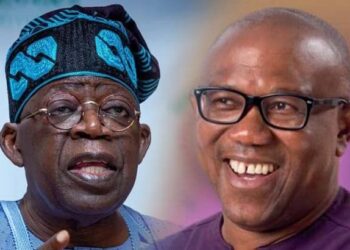 Investors’ 11-year wait for the Nigerian government to open up Africa’s biggest crude industry may be over.
Investors’ 11-year wait for the Nigerian government to open up Africa’s biggest crude industry may be over.
An overhaul of oil policy that’s been in the works for more than a decade is among a raft of laws President Muhammadu Buhari could steer through parliament in his second term to help drive investment in the oil-dependent economy. The delays cost an estimated $15 billion a year in lost funding for the industry over the past decade, according to the Petroleum Ministry.
The ability to implement reforms would mark a departure from Buhari’s first four years in office, when he faced hostile leaders of both chambers of the legislature. Since his re-election in February, Buhari loyalists have taken over as the heads of the Senate and the House of Representatives.
“Expect an improved level of harmony between the National Assembly and the president going forward,” said Luke Ofojebe, an analyst at Lagos-based Vetiva Capital Ltd.
The urgency to get the oil reforms going was signaled by a July 4 meeting between the new Senate president, Ahmed Lawan, and head of Exxon Mobil Corp.’s Nigerian unit, Paul McGrath, where they discussed the quick passage of the bill.
The reforms are needed to drive investment in oil exploration and production that have been withheld because of policy uncertainty. As a result, Nigeria’s crude output and reserves have stagnated over the past two decades, and targets to reach reserves of 40 billion barrels and output of 4 million barrels a day have been pushed back more than 15 years.
Unless new investment comes in, the government may have to cut spending and could struggle to service existing debt. The state relies on oil for two-thirds of government revenue and has failed to meet its income targets in the past three years mainly due to lower-than-expected crude volumes.
The reforms being considered include:
- An intention to sell part of the state’s controlling stakes in joint ventures. Another initiative being considered is the conversion of the partnerships into incorporated entities, which would enable them to raise funding from financial markets.
- Plans to introduce royalties and taxes for the first time on deep-water exploration — a proposal that has faced stiff opposition from oil companies including Exxon, Royal Dutch Shell Plc, Chevron Corp., Total SA and Eni SpA, the state’s joint-venture partners.
- Ensuring that the state derives more benefit from oil and gas contracts.
- Addressing the root causes of violence in the oil-rich Niger River delta that has plagued the industry for more than two decades.
Even with all the reins now in his hands, some analysts still doubt there’ll be rapid progress, given Buhari’s inclination for state intervention rather than market reforms. When the economy was beset by falling revenue in 2016, the government imposed capital controls, banned certain imports and refused a currency devaluation amid a foreign-currency shortage.
“I don’t think the government is interested in any reform, judging by history,” said Robert Omotunde, an analyst at Lagos-based Afrinvest West Africa Ltd.
Foreign portfolio investors fled in the face of the interventionist measures, and only began to return when the central bank set up a market-determined trading window for exporters and importers. Confidence remains low. The Nigerian Stock Exchange Main-Board Index has declined 10% since the first trading day after Buhari’s re-election.
Delicate Negotiations
To arrive at a new law that satisfies the energy companies will take delicate negotiations in the coming months, given lawsuits filed by the government against joint-venture partners that accused them of taking more than their fair share of crude revenue.
“It is more likely they will pass now more than ever because of the mutual suspicion with the leadership of the last National Assembly,” said Bismarck Rewane, chief executive officer of Lagos-based advisory Financial Derivatives Co. “When you remove that, it is more likely to be passed now.”
Source: Bloomberg











